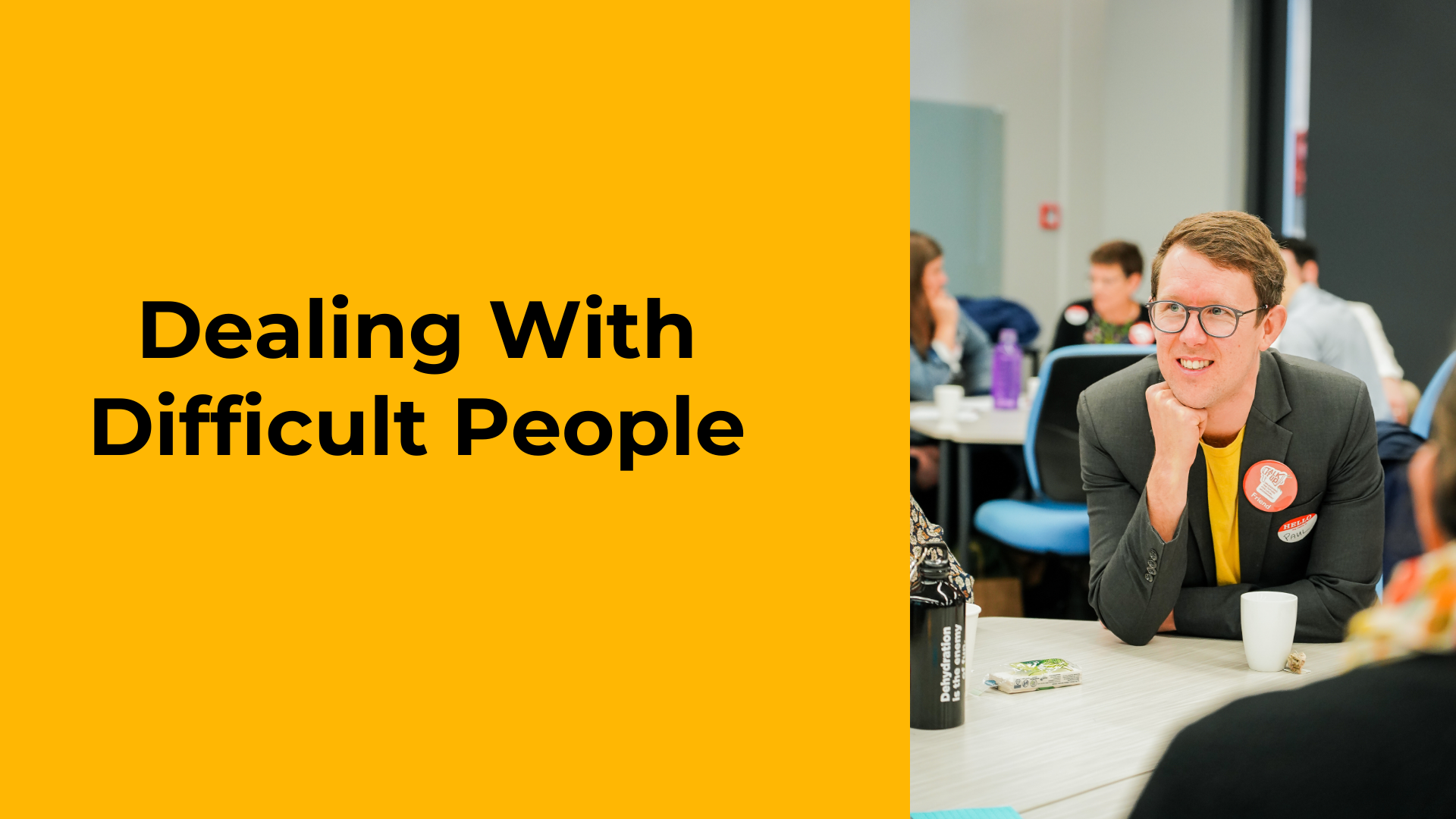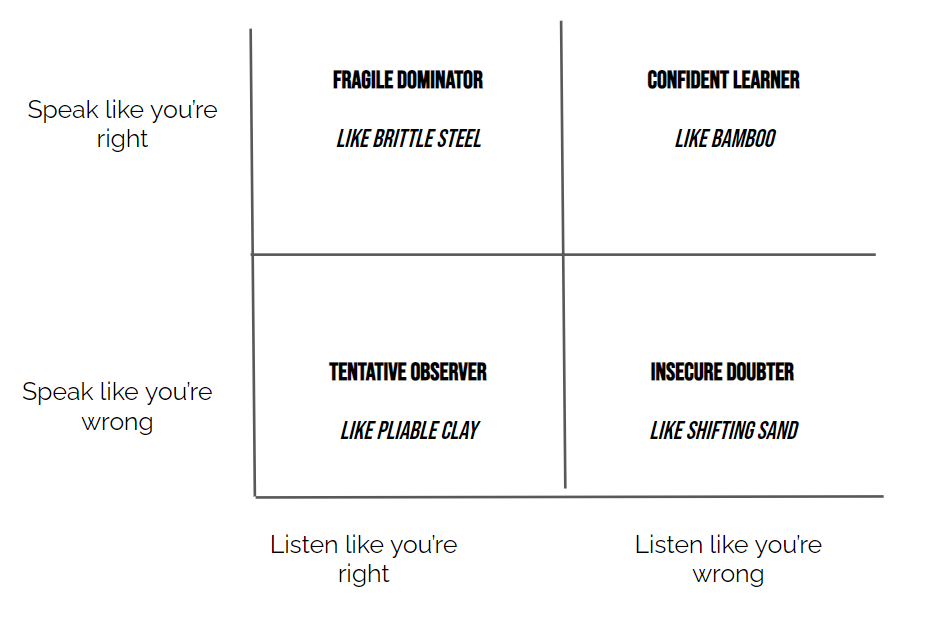|
It's a new financial year. Huzzah! |
|---|
|
If your development budget has been reset, let's make some plans. I'd love to train your team so they can facilitate with less stress and more impact. |
Dealing with difficult people

|
|

Who are you being?
Tentative observers are like pliable clay.
Soft and malleable, they're easily swayed. They lack conviction.
I've been this person. And sometimes it's a smart strategy.
I often held my tongue early in my career, even when the ways of working around me made no sense. I could have spoken out. But the thing is: I didn't know my own mind well enough back then. As a tentative observer, I lacked conviction.
Insecure Doubters are like shifting sand.
Unstable and uncertain, they're easily influenced and lack a solid foundation.
They don't know what's right... only that everybody else is wrong. They speak and listen like everybody is wrong, including themselves.
Fragile dominators are like brittle steel.
Phwa, I struggle to work with fragile dominators.
Their agression and defensiveness make me question myself - turning me into an Insecure Doubter.
Ideally, we'd be like bamboo - a confident learner.
Firm and assertive, yet flexible and open to growth, bending with the wind to avoid breaking.
Ideally, we'd be a confident learner. We speak as though we're right but listen as though we're wrong.
Balancing telling with asking
It's easy to point the finger when we face a Fragile Dominator or Insecure Doubter.
But how are you showing up?
Are you speaking like you're right and listening like you're wrong?
Leading with questions means we show up with curiosity and know that the rest will sort itself out.
When we're able to balance telling with asking, we create space for a bigger conversation. And that's how most change happens... one conversation at a time.
Ngā mihi,
Paul